In recent years, the concept of houses on wheels has gained significant popularity, offering a unique and innovative approach to mobile living.
These homes, also known as mobile homes or tiny houses on wheels, provide a practical and affordable housing option that allows individuals to travel and explore the world without sacrificing the comforts of home.
Contents
While mobile homes have been around for decades, innovative designs and space-saving features have transformed them into a desirable alternative to traditional housing.
From camper vans to custom-built portable houses, there are now numerous options for those seeking a mobile lifestyle.
Key Takeaways:
- Houses on wheels offer a practical and affordable housing option for those seeking a mobile lifestyle
- Innovative designs and space-saving features have made mobile homes more desirable than ever
- There are various types of mobile homes available, including camper vans, trailer homes, and custom-built portable houses
Exploring Innovative Designs
Mobile homes have come a long way from the stereotypical images of cramped and outdated trailer parks.
Today, innovative designs have revolutionized the world of small portable homes, offering an array of space-saving features and unique aesthetics.
One popular design concept for small portable homes is the incorporation of multi-use spaces.
For example, a living area can also function as a dining room or work space, while a sofa can convert into a bed for overnight guests.
Another design trend is the use of foldaway furniture and collapsible storage solutions that maximize the available space.
The aesthetic of mobile homes has also evolved, with designers incorporating modern and sleek elements into their creations.
The use of clean lines, natural light, and high-quality materials can make a small space feel open and luxurious.
Some innovative designers have even taken inspiration from nature, creating portable houses that blend seamlessly into their surroundings.
For example, the Ecocapsule is a small portable home that resembles an egg-shaped pod and runs entirely on renewable energy.
Overall, the world of innovative designs for mobile homes is vast and constantly evolving.
Whether you’re looking for a cozy and minimalist tiny home on wheels or a spacious and modern trailer, there’s sure to be a design that will suit your needs and preferences.
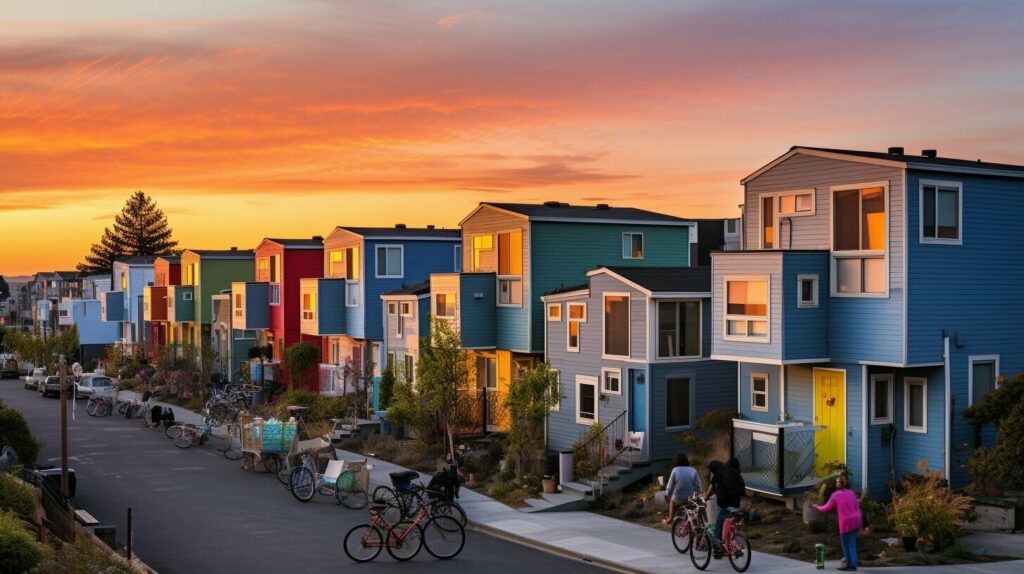
Practical Amenities for Mobile Living
One of the significant advantages of houses on wheels is the practical amenities that can be incorporated into their design.
With some creativity and planning, portable houses can contain all the essential amenities required for comfortable living, just like a traditional dwelling.
One of the most crucial amenities to consider is the kitchen.
While most people assume that a mobile home’s kitchen will be cramped and limited, this is not the case.
Many houses on wheels feature full-sized refrigerators, stovetops, and ovens, just like a conventional house.
Another practical amenity is the bathroom, which can come in various configurations depending on the size of the mobile home.
Some houses on wheels have full-sized bathrooms with a shower, flush toilet, and sink.
Alternatively, some tiny houses on wheels have composting toilets and minimalistic shower solutions.
Regardless of the configuration, it is crucial to ensure that the plumbing system is well-designed to prevent leakage and other issues.
Sleeping quarters are another essential amenity for mobile living.
In most cases, portable houses have lofted or bunk-style sleeping areas that can accommodate multiple people.
Some houses on wheels also have pull-out sofas, transforming the living area into a bedroom at night.
It is essential to select a suitable configuration based on individual preferences and the number of occupants that the mobile home will house.
Storage solutions are critical for all houses on wheels since space is limited.
While it may seem challenging to store all necessary items in such a small space, many companies specialize in designing custom storage solutions that fit the specific layout of the mobile home.
From overhead cabinets to under-bed drawers, there are numerous ways to maximize space utilization.
In short, with proper planning and design, houses on wheels can incorporate all the practical amenities necessary for comfortable living.
From kitchens and bathrooms to sleeping quarters and storage solutions, mobile living can provide all the necessary features of a traditional dwelling in a compact, portable form.
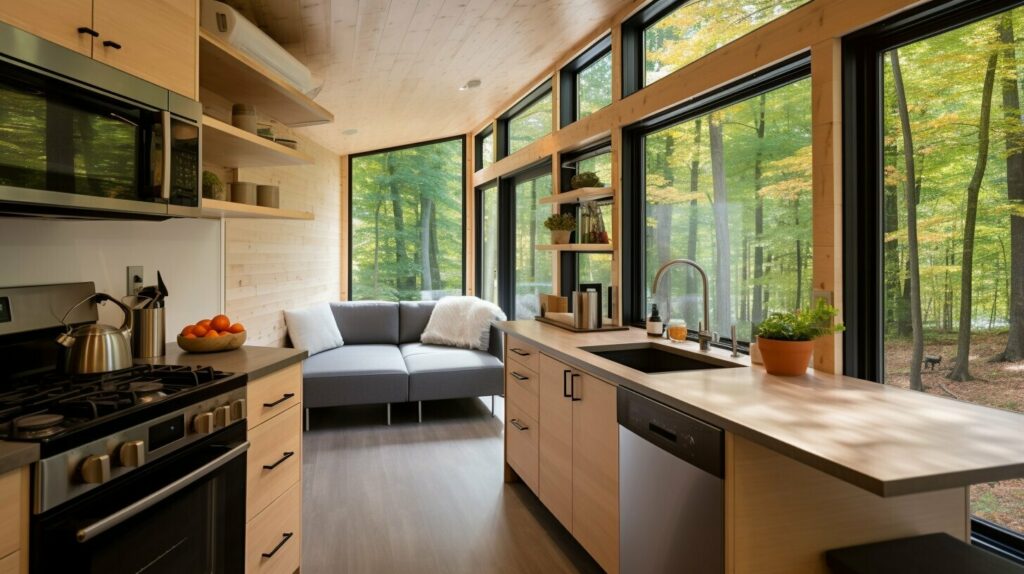
Advantages of RV Living
If you’re looking for a mobile living solution, an RV can offer a range of benefits.
RV living, or mobile home living, allows you to travel while still enjoying the comforts of home.
Here are just a few reasons why RV living might be the right choice for you:
- Flexibility: One of the biggest advantages of RV living is the ability to move around as much or as little as you want. With an RV, you can change your location whenever you like, whether it’s for work, pleasure, or just to explore new areas.
- Cost Savings: RV living can be significantly cheaper than traditional housing options. You’ll save money on rent, property taxes, and other costs associated with owning a fixed home.
- Simplified Lifestyle: Living in an RV forces you to downsize and simplify your belongings, which can be a refreshing change for those seeking a more minimalist lifestyle.
Of course, RV living also comes with its own unique challenges and considerations.
You’ll need to be comfortable with a smaller living space and be prepared for the maintenance and upkeep that comes with owning a vehicle.
“RV living, or mobile home living, allows you to travel while still enjoying the comforts of home.”
Additionally, it’s important to note that RV living may not be suitable for everyone.
If you have a large family or pets, it may be difficult to fit everyone comfortably in an RV.
Furthermore, RV parking and zoning laws can vary depending on your location, so it’s important to research and plan accordingly.
Despite these challenges, RV living can offer a sense of freedom and adventure that’s hard to come by with traditional housing options.
If you’re willing to embrace a more mobile lifestyle, RV living might be the perfect fit for you.
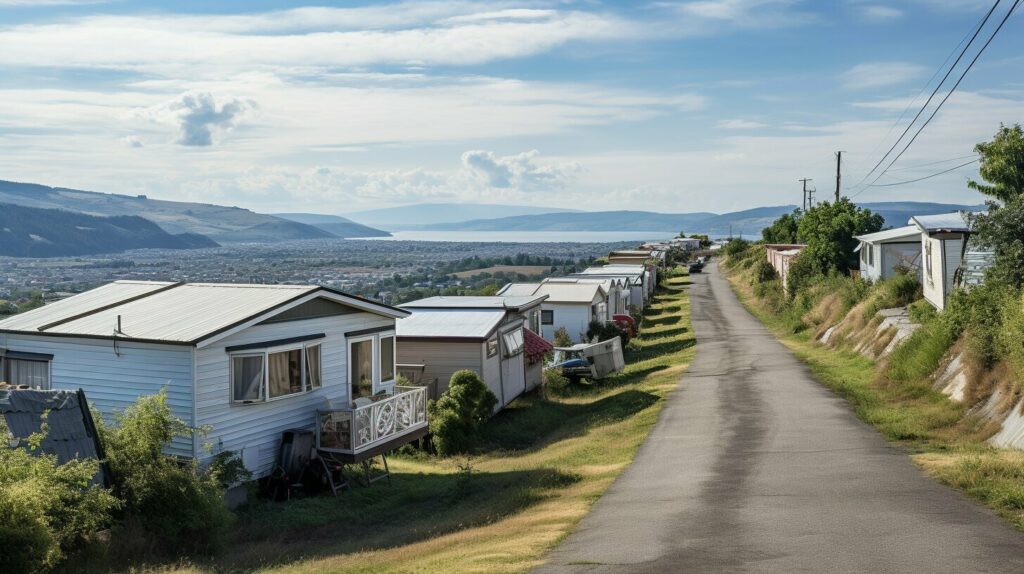
Tiny Houses on Wheels: The Minimalist’s Dream
If you’re looking to simplify your life and downsize your belongings, a tiny house on wheels may be the perfect solution.
These small portable homes are designed to be efficient, affordable, and environmentally friendly.
Making them ideal for those who want to minimize their carbon footprint and live a more sustainable lifestyle.
One of the biggest advantages of a tiny house on wheels is their portability.
With the ability to move your home wherever you please, you have the freedom to explore new places and enjoy a life of adventure.
Whether you want to park your tiny house on a friend’s property or travel to new destinations, a tiny house on wheels gives you the flexibility to do so.
Despite their small size, tiny houses on wheels can be designed to include all the amenities you need for comfortable living.
From a functional kitchen and bathroom to a cozy sleeping loft, these homes are beautifully crafted to maximize every inch of available space.
Plus, with their stylish and unique aesthetics, tiny houses on wheels offer a charming and inviting living space that’s perfect for solo living or couples.
For those who prioritize sustainability and affordability, a tiny house on wheels is an excellent housing option.
With their use of energy-efficient appliances and materials, these homes are designed to have a low impact on the environment while keeping your utility bills low.
Plus, with their smaller size, tiny houses on wheels require less upkeep and maintenance, making them a cost-effective alternative to traditional housing options.
Whether you’re looking for a permanent residence or a temporary living solution, a tiny house on wheels offers a unique and rewarding living experience.
With the ability to customize your home to fit your specific needs and preferences, and the freedom to travel and explore at a moment’s notice.
A tiny house on wheels is the perfect housing option for those looking to simplify their lives and embrace a minimalist lifestyle.
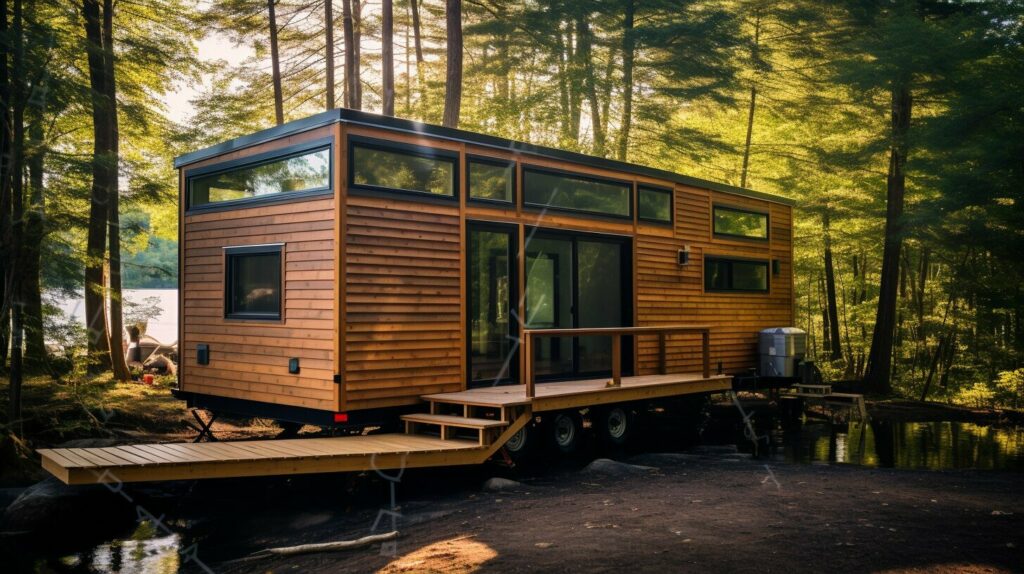
Trailer Homes: A Practical Housing Option
Trailer homes, also known as mobile homes, offer a practical and affordable housing solution for those looking to downsize or live a more minimalist lifestyle.
These homes are typically designed to be portable, allowing for easy relocation and flexibility in choosing where to live.
One major advantage of trailer homes is their affordability.
They are often less expensive than traditional homes and can be a great option for those looking to enter the housing market without taking on significant debt.
Trailer homes can serve as a temporary or permanent housing solution.
They are particularly popular among retirees who want to travel and explore new places without giving up the comforts of home.
Trailer parks, which are specifically designed for trailer homes, offer additional amenities such as community centers and recreational areas.
There are also customization options available for trailer homes, allowing for personalization of the living space.
This includes options for exterior finishes, flooring, and appliances.
However, there are also regulatory considerations to keep in mind when opting for trailer home living.
Different areas have different regulations and zoning laws regarding the use of trailer homes.
It is important to research and understand these regulations before purchasing a trailer home.
Maintenance and upkeep are important factors to consider as well.
Trailer homes require regular maintenance, such as checking for leaks, maintaining the HVAC system, and ensuring proper ventilation.
Proper storage when not in use is also crucial to avoid damage from weather or pests.
Overall, trailer homes offer a practical and affordable housing option for those looking to downsize or live a more mobile lifestyle.
With the right research and preparation, trailer home living can provide a unique and fulfilling living experience.
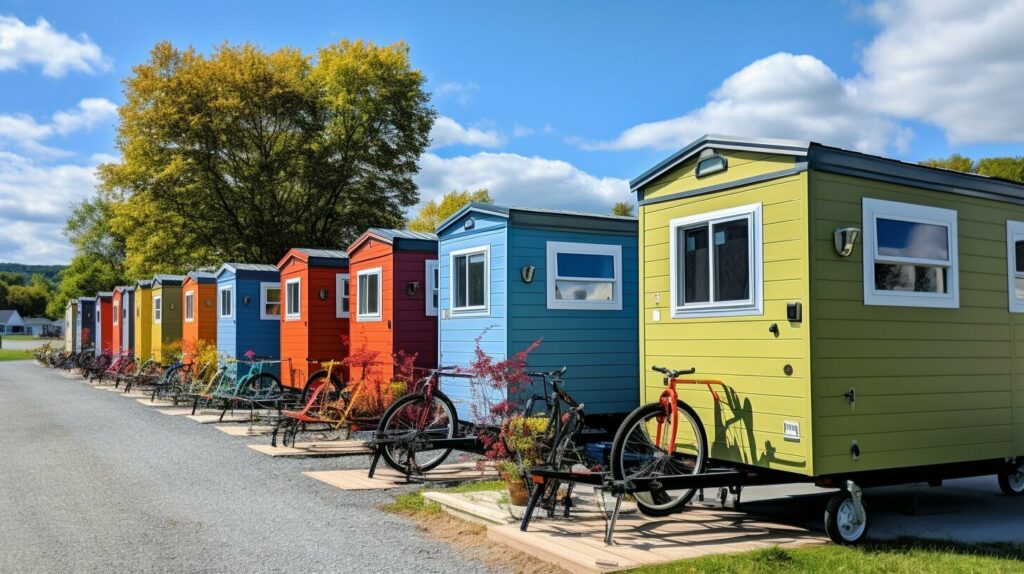
Camper Vans: Compact Mobile Living
For those looking for a compact and efficient way to experience mobile living, camper vans are an excellent option.
These small vehicles can be customized to fit the needs of their owners while also offering the freedom and mobility of traditional RV living.
| Benefits of Camper Vans | Considerations |
|---|---|
|
|
Despite their smaller size, camper vans often contain all the necessary amenities for comfortable living, including sleeping quarters, kitchen facilities, and even showers and toilets.
Many camper vans also incorporate clever space-saving features, such as fold-out beds and convertible furniture, to maximize their interior space.
For those who prioritize mobility and adventure, a camper van provides an excellent way to explore new environments and embrace a minimalist lifestyle.
With the ability to navigate narrow roads, access remote camping spots, and travel to new destinations on a whim, camper vans offer a sense of freedom and autonomy that is hard to match.
However, it is important to consider the limitations of camper vans when it comes to long-term living or larger groups.
While they can provide a comfortable living space for individuals or couples, they may not be suitable for families or groups of friends.
Additionally, those looking to bring larger gear, such as bikes or kayaks, may need to invest in additional storage or towing capabilities.
Overall, camper vans offer a practical and versatile option for those looking to embrace mobile living.
Whether used for weekend getaways or extended road trips.
These vehicles provide a unique opportunity to experience the world in a compact and efficient way.
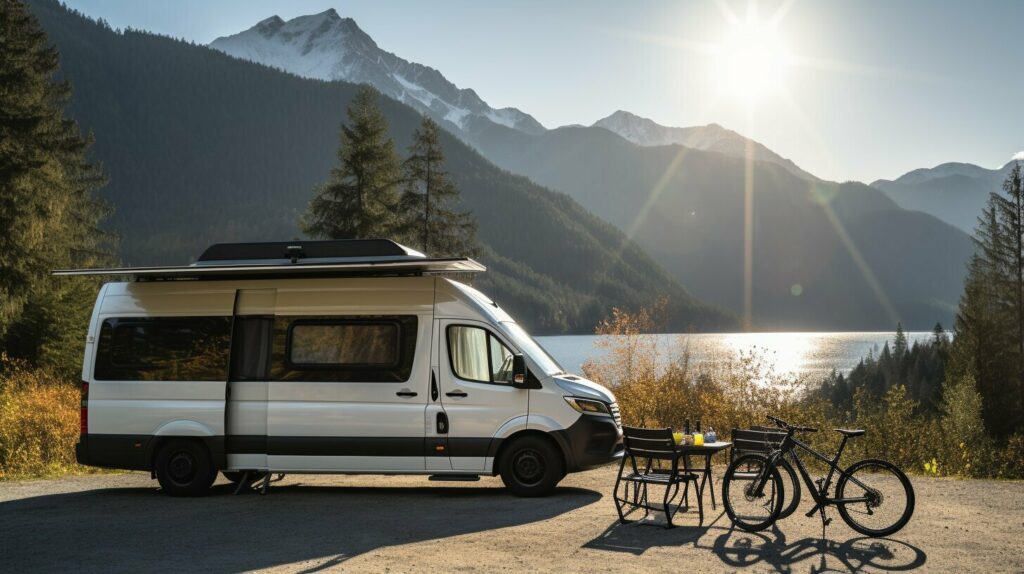
The Freedom of Mobile Living
One of the most attractive elements of mobile living is the sense of freedom it offers.
Living in a portable house allows individuals to pick up and go whenever they feel like it.
Whether it’s to explore a new city, chase warm weather, or simply enjoy a change of scenery.
The ability to travel on a whim is a hallmark of mobile living, and one that appeals to many.
Mobile living also offers the chance to connect with nature and enjoy the great outdoors.
Whether parked in a remote campground or parked on a friend’s property.
A portable house allows individuals to immerse themselves in the natural world and enjoy all that it has to offer.
Perhaps most importantly, mobile living allows individuals to break free from the constraints of traditional housing.
With a portable house, there are no mortgages to worry about, no property taxes to pay, and no maintenance needs beyond the routine.
This simplified lifestyle can be both freeing and rewarding, and allows individuals to focus on the things that truly matter.
Of course, mobile living isn’t for everyone.
It requires a certain degree of adaptability and flexibility, as well as a willingness to let go of traditional notions of home and property.
However, for those who are open to the idea, mobile living can offer a unique and rewarding way of life.
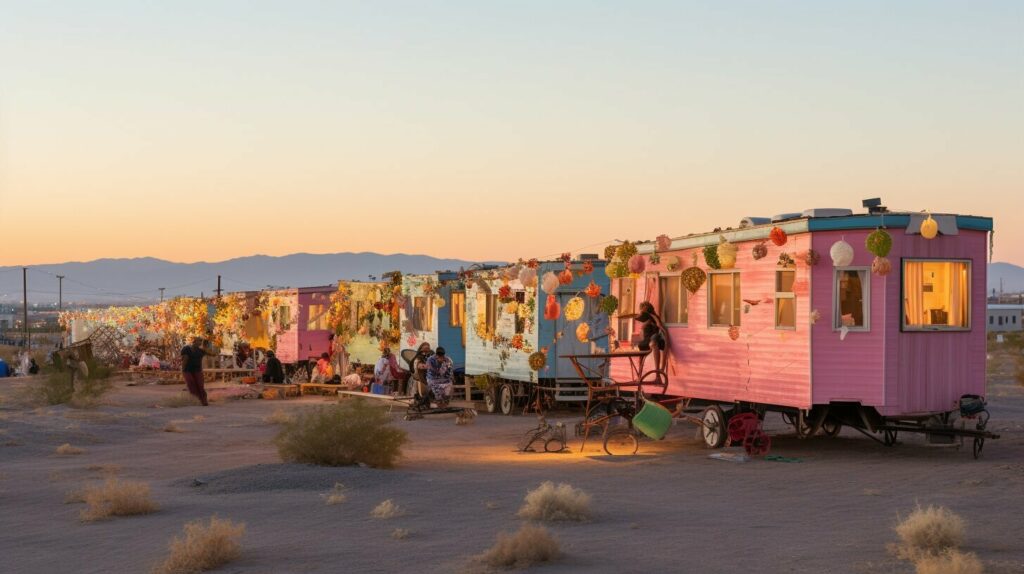
Customization Options for Houses on Wheels
From interior design to exterior finishes, there are endless possibilities to tailor your portable home to your liking.
When designing the interior, you can choose from a range of layouts and floor plans to best utilize the limited space available in a portable house.
Built-in furniture, such as foldable tables and Murphy beds, can maximize functionality without sacrificing valuable square footage.
Storage solutions, such as cabinets and compartments integrated into the walls, can help keep belongings organized and easily accessible.
On the exterior, there are numerous options for finishes and styles, from sleek and modern to rustic and charming.
You can also choose from various materials, such as wood, metal, or fiberglass, depending on your preference and budget.
Additional features, such as solar panels, water filtration systems, and outdoor living spaces, can also be incorporated into your house on wheels to enhance your mobile living experience.
The possibilities for customization are endless, allowing you to create a truly one-of-a-kind dwelling.
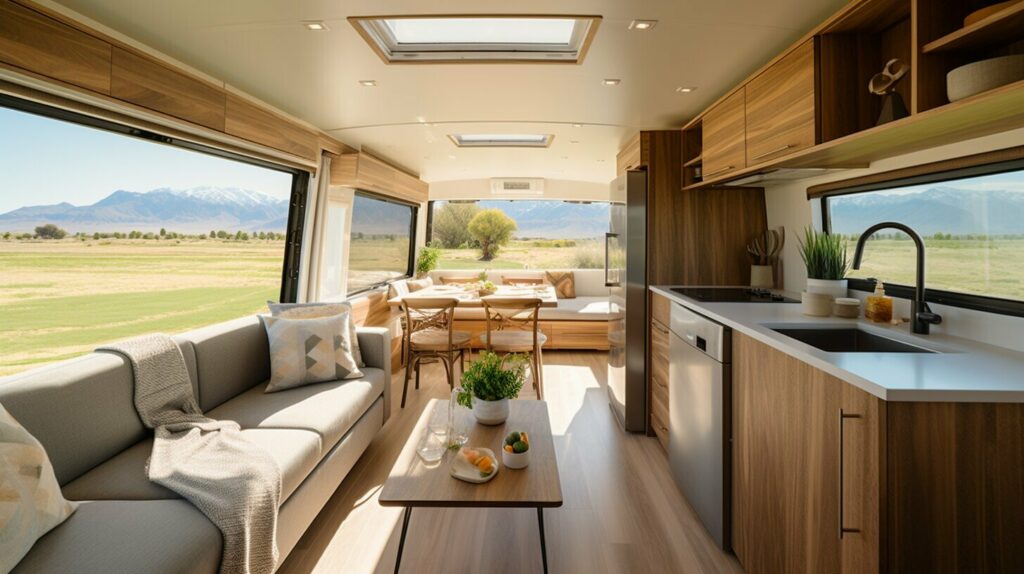
Regulations and Zoning Considerations
Before purchasing a house on wheels or a mobile home, it is important to research the regulations and zoning requirements in your area.
While houses on wheels offer flexibility and mobility, they may face restrictions in terms of parking, permits, and even legal requirements.
For example, some cities or counties may have restrictions on where you can park and live in a mobile home or house on wheels.
In addition, some communities may require permits for parking or may prohibit parking altogether.
It’s also important to note that not all mobile homes or houses on wheels are considered equal in the eyes of the law.
While RVs and tiny houses on wheels may be classified as recreational vehicles.
Larger mobile homes may be subject to different regulations and requirements.
It’s crucial to do your due diligence and check with local authorities to ensure you are compliant with all applicable regulations.
This can prevent costly fines or legal issues down the road.
Additionally, it’s important to note that zoning laws can vary depending on the location.
Some areas may have restrictions on the size and placement of houses on wheels or mobile homes.
It’s important to thoroughly research zoning laws in your desired location before making any purchases.
Overall, while houses on wheels and mobile homes offer unique and flexible living options.
It’s important to be aware of the regulations and zoning considerations in your area.
By doing your research and ensuring compliance with all applicable laws, you can enjoy the benefits of mobile living without any legal issues.
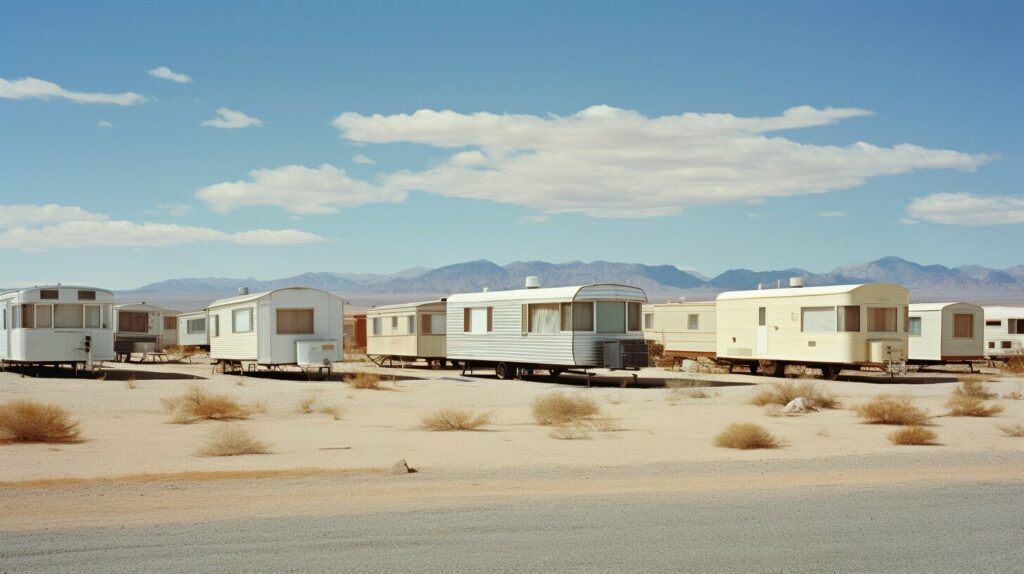
Maintenance and Upkeep of Houses on Wheels
Proper maintenance and upkeep are essential for ensuring the longevity and safety of houses on wheels.
Regular maintenance tasks should be performed to keep the house in good condition and prevent potential problems.
Some common maintenance tasks include inspecting the roof for leaks, checking the tires and brakes.
And ensuring that all systems (such as plumbing and electrical) are functioning properly.
It is also important to regularly clean and sanitize the interior of the house, as well as the exterior.
When not in use, houses on wheels should be properly stored to prevent damage from weather and pests.
This may involve covering the house with a tarp or storing it in a secure location.
It is also important to regularly inspect the house for any signs of damage or wear and tear.
Repairs should be made promptly to prevent further damage and ensure the safety of the occupants.
In addition to regular maintenance, it is important to be aware of any specific regulations or requirements for houses on wheels in your area.
This may include obtaining permits for parking or living in a particular location, as well as adhering to specific building codes or safety standards.
By properly maintaining and caring for your house on wheels, you can ensure that it remains a safe and comfortable place to live for years to come.
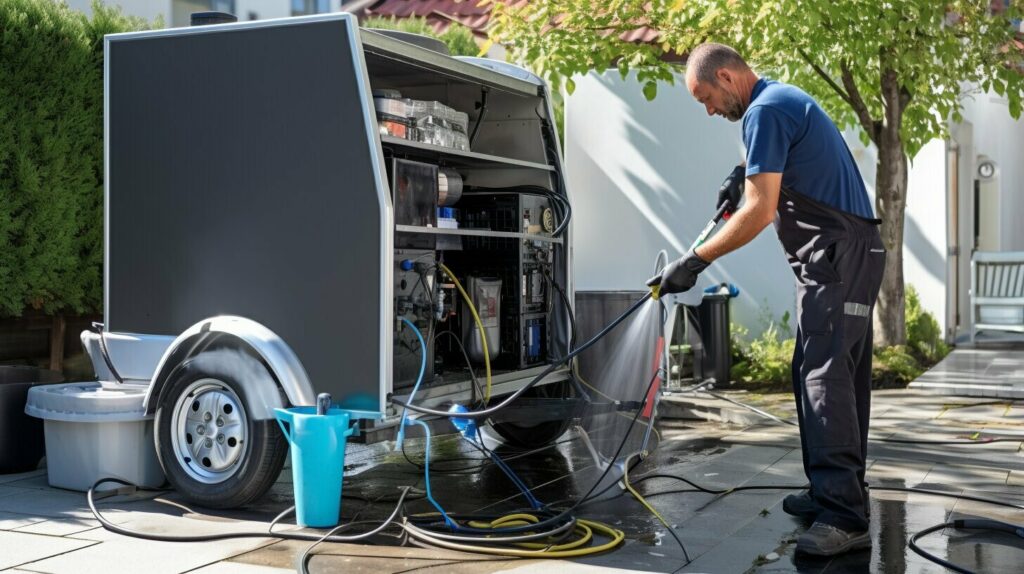
Cost Considerations for Mobile Living
One of the main advantages of mobile living is the potential for cost savings compared to traditional housing options.
While the initial purchase cost of a portable house can vary widely depending on the size, features, and materials used, ongoing expenses can be significantly lower due to reduced utility costs and smaller living space.
Mobile living allows for greater flexibility in choosing a living location, which can also affect costs.
Remote or rural locations may have lower land prices or rental rates, while urban areas may have higher costs but offer more job opportunities.
It is important to keep in mind that while mobile living can be affordable, there are still ongoing expenses to consider.
These may include maintenance and repair costs, insurance, and any fees associated with parking or storage.
Overall, the cost considerations of mobile living depend on individual circumstances and choices.
By carefully planning and budgeting, it is possible to live a fulfilling and affordable life in a portable home.
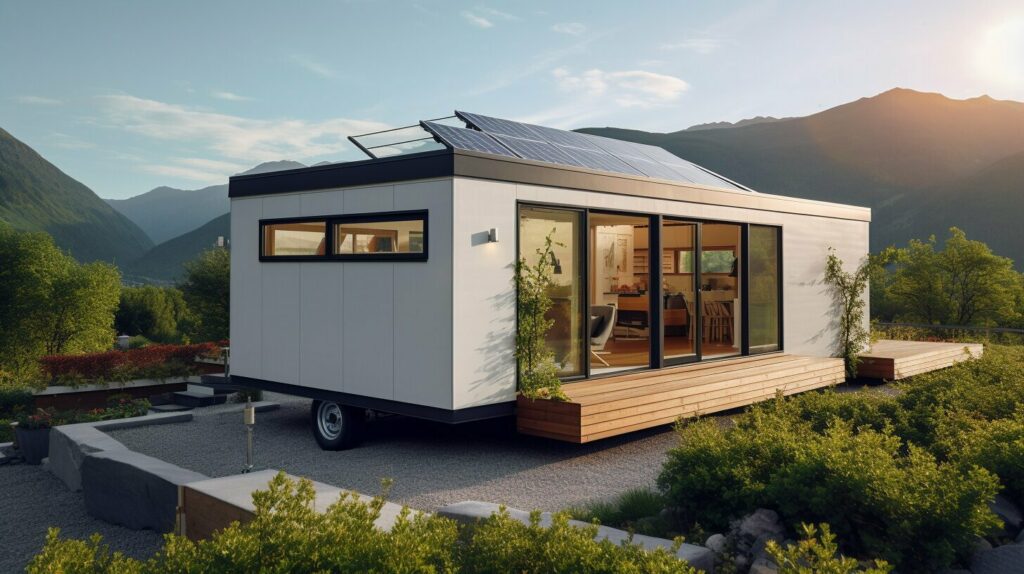
Conclusion
Whether you choose a house on wheels, trailer home, or camper van, mobile living offers a unique lifestyle that combines freedom, adventure, and comfort.
The possibilities for customization and innovation are endless, and the ability to travel and explore new places is unmatched.
While there are considerations to keep in mind, such as regulations and maintenance, the benefits of mobile living are vast.
From the minimalist appeal of tiny houses on wheels to the cost savings of RV living, there is a portable housing option for every preference and budget.
Experience the joy of mobile living and enjoy the freedom of living life on your own terms.
FAQ
Q1: What are houses on wheels?
A: Houses on wheels, also known as mobile homes or tiny houses on wheels, are residential structures that can be moved from one location to another. They are often built on a trailer or RV chassis and offer the flexibility of a mobile lifestyle.
Q2: What are the advantages of houses on wheels?
A: Houses on wheels provide the freedom to travel and explore different locations. They offer cost-effective living options and can be customized to individual preferences. They also provide a minimalist lifestyle, with the ability to live with fewer belongings and reduce environmental impact.
Q3: What innovative designs are available for houses on wheels?
A: There are various innovative designs available for houses on wheels, including small portable homes that maximize space and incorporate unique aesthetics. These designs often feature creative storage solutions, multi-functional furniture, and efficient use of space.
Q4: Can practical amenities be incorporated into houses on wheels?
A: Yes, practical amenities such as kitchens, bathrooms, sleeping quarters, and storage solutions can be incorporated into houses on wheels. The design and layout can be tailored to accommodate these amenities, ensuring a comfortable living experience even on the move.
Q5: What are the advantages of RV living?
A: RV living offers the ability to travel and explore different locations, with the convenience of a mobile home. It can also lead to lower costs compared to traditional housing, as it eliminates property taxes and reduces utility expenses. Additionally, RV living promotes a simplified lifestyle with less maintenance and a focus on experiences over material possessions.

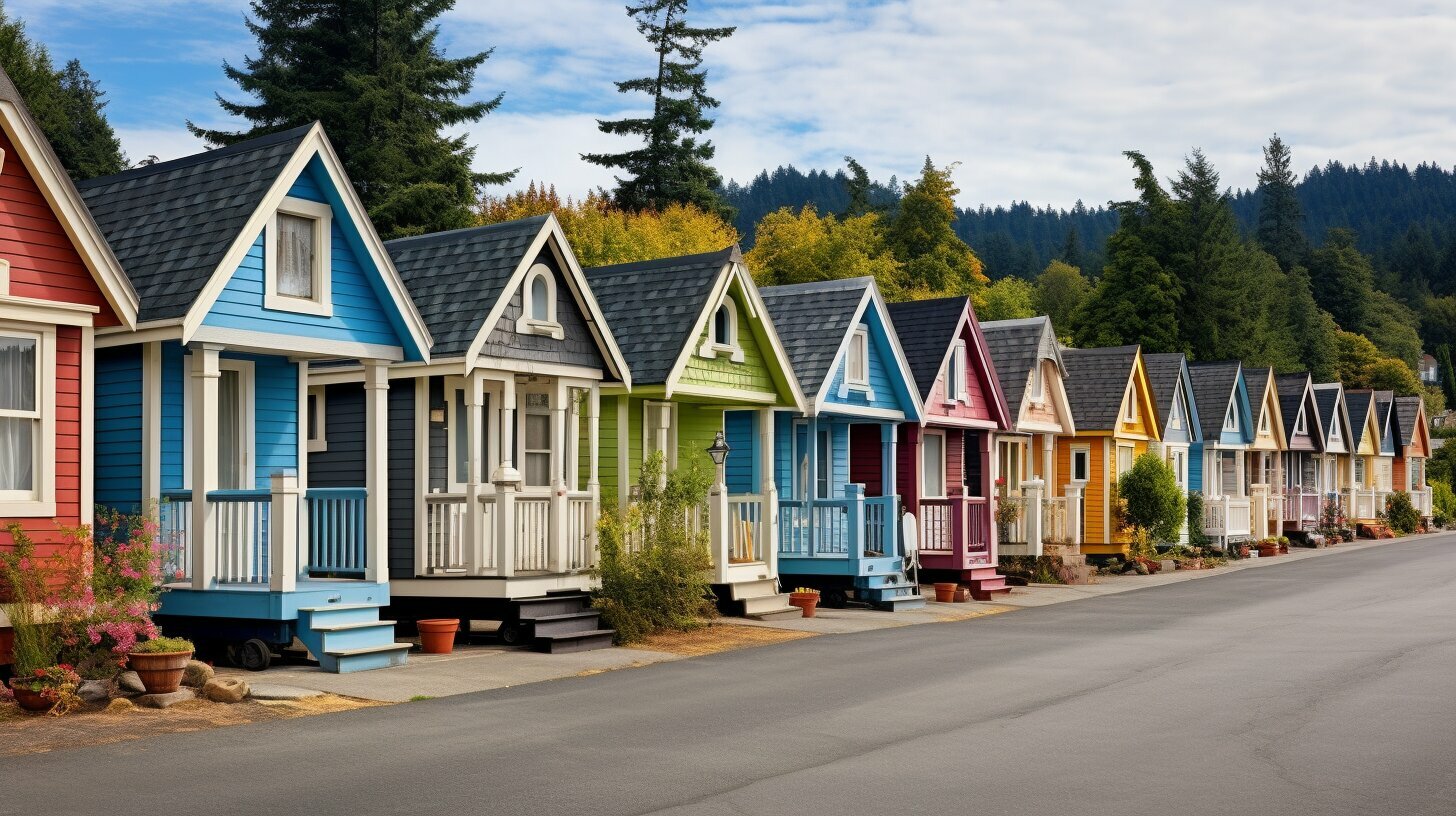
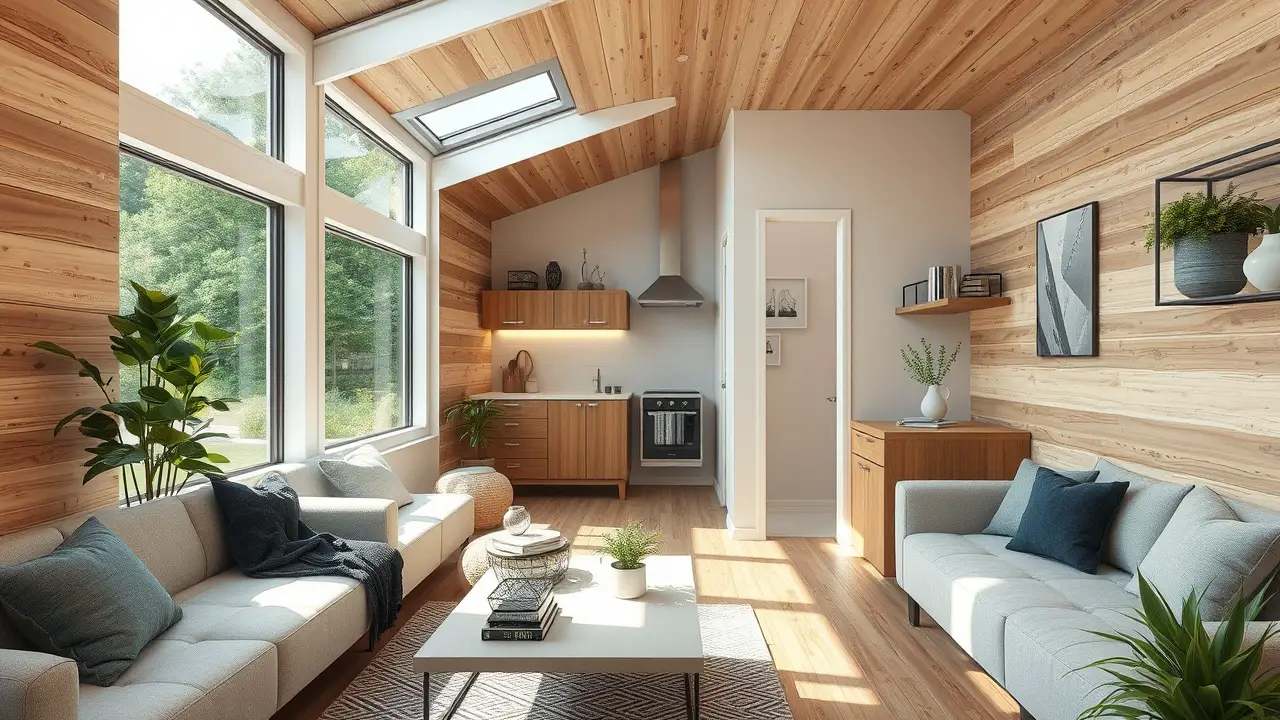
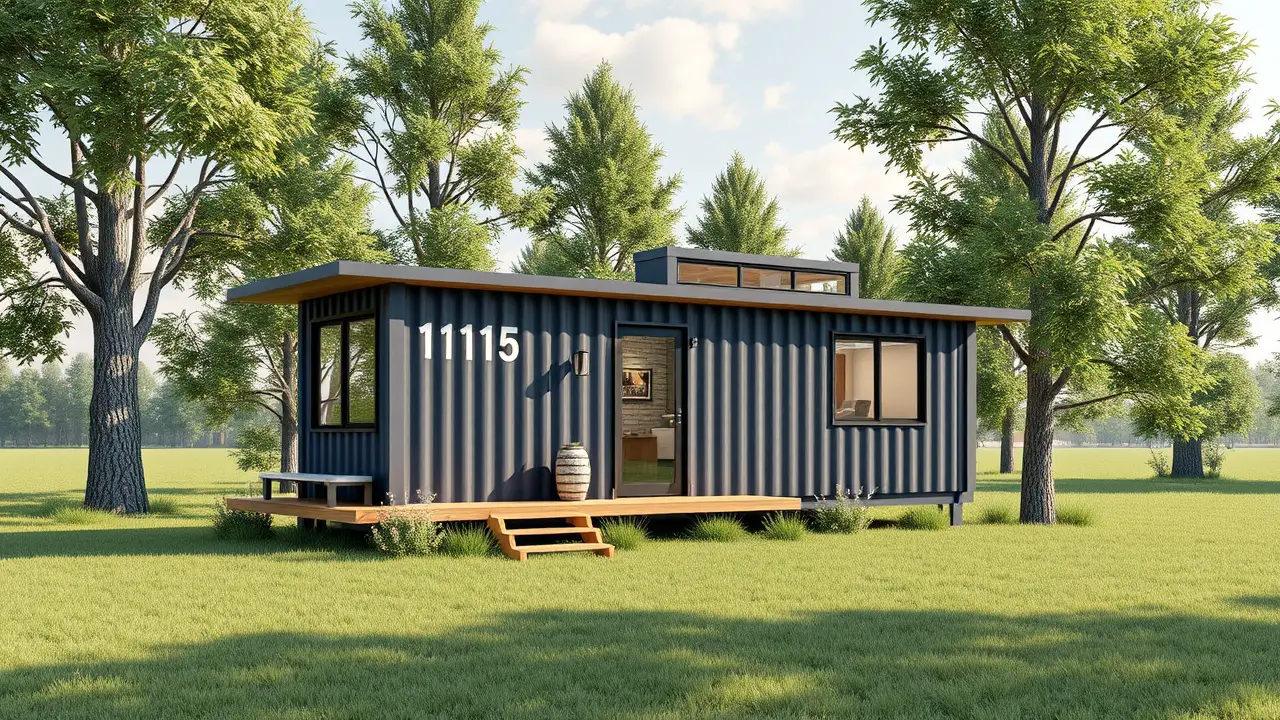
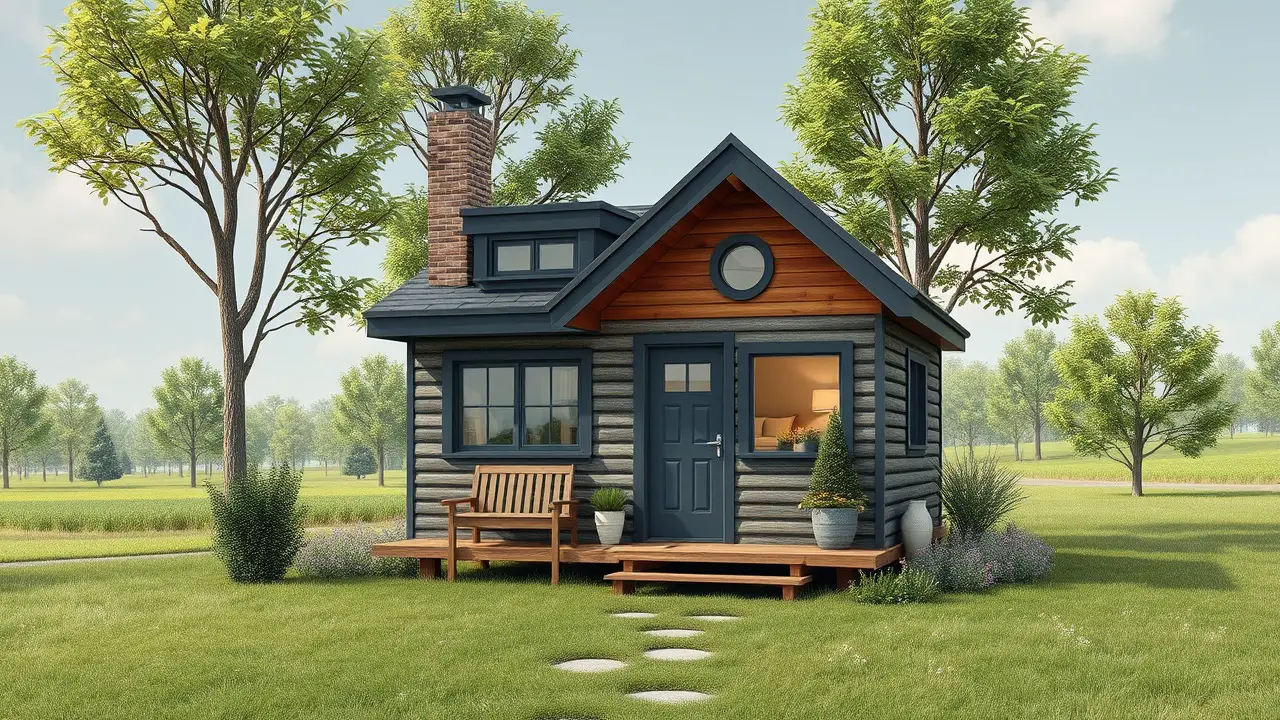
Leave a Reply